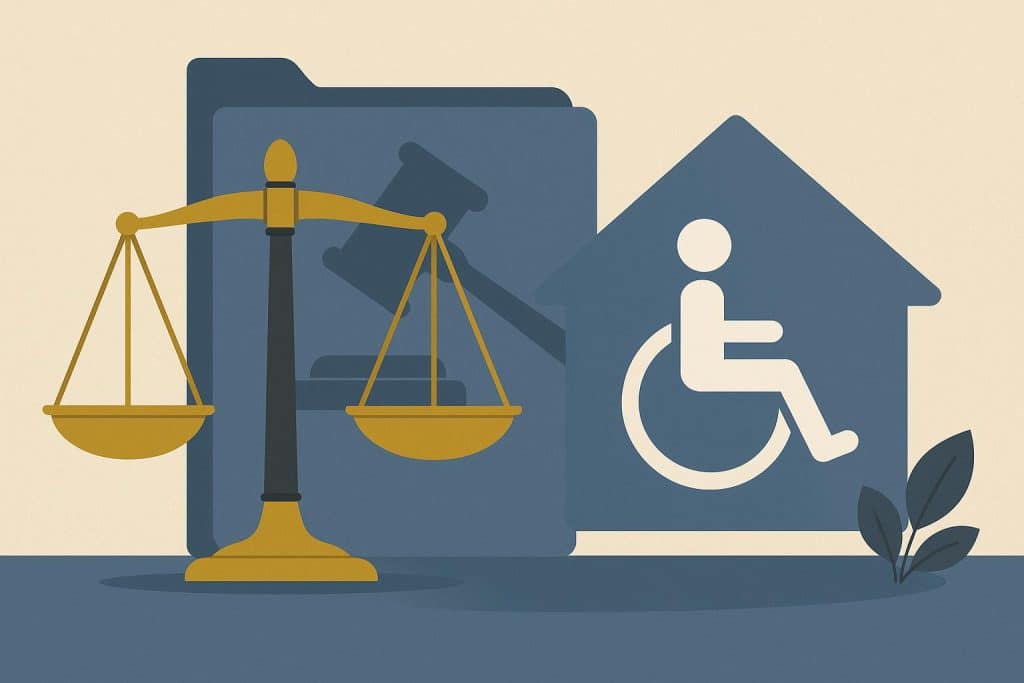The accommodation of disabled tenants is not only a legal obligation, but also an obligation that building owners should not ignore. Inability to accommodate the tenants may result in conflict, complaints, and law suits which are very expensive. Being aware of the law of the land in the area of long-term disability and ensuring that steps are taken to make it available would safeguard both tenants and property owners. A disability lawyer can assist in obtaining guidance on compliance and avoiding any possible legal tussle.
It is not only that by ensuring that your property is accessible to tenants with disabilities, you are helping to avoid lawsuits; but also helping to provide a safe and inclusive environment. The owners of buildings who are interested in accessibility and good communication create trust and minimize misunderstanding. It is also possible to save time, money and stress as well as to express a sense of commitment to legal and ethical responsibility by being proactive.
Seeking Legal Guidance
Resorting to the services of a disability lawyer to conduct a consistent consultation is a sure way to ensure your policies are not in conflict with the existing laws. Legal advice assists in foreseeing the possible dangers and gives an effective plan of action in case of any disagreement. Small-time problems can be addressed before they progress into a litigation suit with the help of a lawyer.
In the event of complicated cases, consulting a long term disability lawyer might resolve the legal complications. Professional legal consultation brings calm and is a shield of the tenants and real estate owners. The owners of the buildings who consult with professionals are careful and they minimize the chances of expensive court battles.
Legal Requirement Of Compliance
Owners of buildings need to orient themselves with local, state, and federal laws on the disability accommodation. The Americans with Disabilities Act and other laws like it demand reasonable accommodations on the part of landlords to make sure that tenants do not have to contend with needless obstacles before accessing and making the property experience enjoyable. The first step of preventing litigation is to understand these requirements.
Laws Loss of legal compliance may lead to fines, lawsuits and complaints. It is advisable to use the help of a long term disability lawyer to understand the legal requirements and apply effective policies by the property owners. The clear interpretation of the law will guarantee that the accommodations are not only reasonable but also justified by the law.
Good Interaction With The Tenants
The barriers to effective communication with tenants in issues concerning their disability should be kept open and consistent. By hearing the worries of tenants and talking about possible solutions, one will decrease the number of misunderstandings and develop a constructive relationship. Best communication helps show tenants that they are respected and that their needs matter.
It is also important to record every conversation and contract with the tenants. Written records of good faith attempts to accommodate disability requests are evidence that can be priceless in case of a conflict. A high degree of accountability and an active willingness to adhere to the rules is shown through clear communication with documentation backing it.
Access And Adjustments Of Properties
It is necessary to make sure that there is access to common areas and individual units to avoid any legal problems. These alterations could be ramps, enlarged door frames or availability of accessible restroom facilities. When you examine your premises to identify possible obstacles, and take the appropriate action, this is proactive care and will limit the potential for complaints.
Accessibility should be taken into consideration with the building codes and safety when making changes. It is possible to consult professionals who know the disability regulations and find out effective changes. Hiring a long term disability attorney will make sure that the suggested modifications are legally acceptable and minimize the risk of lawsuits.
Employee Education And Sensitization
Building staff are important in ensuring a compliant and conducive environment. Disability awareness, legal, and proper accommodation process training will help stop the unconscious violations. Staff members who know the law will be able to better meet the needs of the tenants.
Training programs that are regularly revised will ensure that staff are notified about the new regulations or policy changes. Developing a culture of awareness and sensitivity among its team members will make the surrounding environment safer to the tenants and reduce the chances of legal conflicts. Well trained employees are a great protection against possible assertions.
